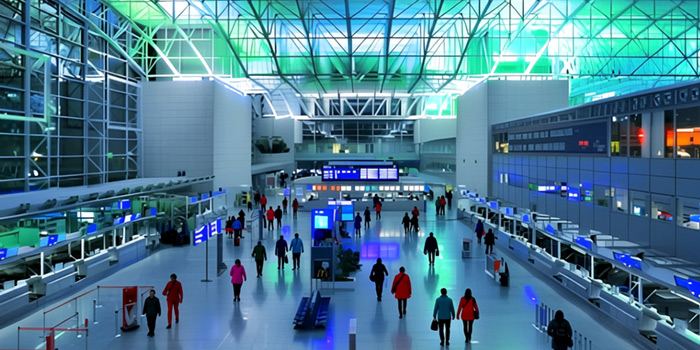AI in Aviation: How Airlines and Airports Are Embracing Intelligence to Optimize Operations
16 Oct 2025
Highlights:
As global aviation rebounds and modernizes, industry leaders are turning to artificial intelligence to enhance efficiency, reduce costs, and respond to growing operational challenges. From optimizing flight operations to forecasting weather and workforce planning, AI is transforming how airlines and airports make decisions in real time.

Air India: AI-Powered Operational Efficiency
Air India is leading the way with its integration of AI-powered insights into flight operations using Microsoft Copilot. Through natural language queries, operations teams can now instantly access critical data on flight performance, aircraft availability, crew scheduling, and airport constraints—eliminating the need for manual data analysis or siloed reporting.
The result? Improved on-time performance, faster collaboration across departments like ground handling and maintenance, and enhanced agility in responding to disruptions. With dynamic resource reallocation, Air India has significantly minimized downtime and operational costs.
Frankfurt Airport: Smarter Workforce Management
Europe’s Frankfurt Airport is leveraging AI to tackle the dual pressures of increasing passenger volumes and a shrinking labor force. Traffic is projected to rise by 30%, even as the airport braces for a similar decline in workforce availability due to retirements.
To address this, airport operator Fraport AG has deployed "FraportGPT", an AI assistant powered by Microsoft’s Azure OpenAI Service. Integrated into the airport’s core systems, FraportGPT supports teams across operations, legal, and administrative functions—streamlining access to critical data, automating workflows, and improving day-to-day decision-making.
Tomorrow.io: AI-Enhanced Weather Forecasting
For airlines, weather remains one of the most unpredictable variables. Enter Tomorrow.io, which has developed an AI-powered global weather forecasting system using a proprietary satellite network. Airlines like United Airlines and JetBlue use this platform to receive hyper-local, real-time forecasts every 40–60 minutes, enabling them to reroute or delay flights before weather becomes a disruptive force.
By combining public meteorological data with its own satellite inputs and advanced AI models, Tomorrow.io helps carriers improve operational planning, reduce weather-related delays, and boost overall passenger satisfaction.
Sources
• Microsoft News Center India: Air India adopts Microsoft Copilot for flight operations
• Fraport AG Press Release: FraportGPT launch for AI-powered workforce optimization
• Tomorrow.io Blog: AI in aviation weather – powering proactive decisions for major airlines
• IATA Industry Reports (for aviation context and trends)
AviaPro Newsroom
+1 416-544-9969
info@aviaproconsulting.com

Editorial Contacts